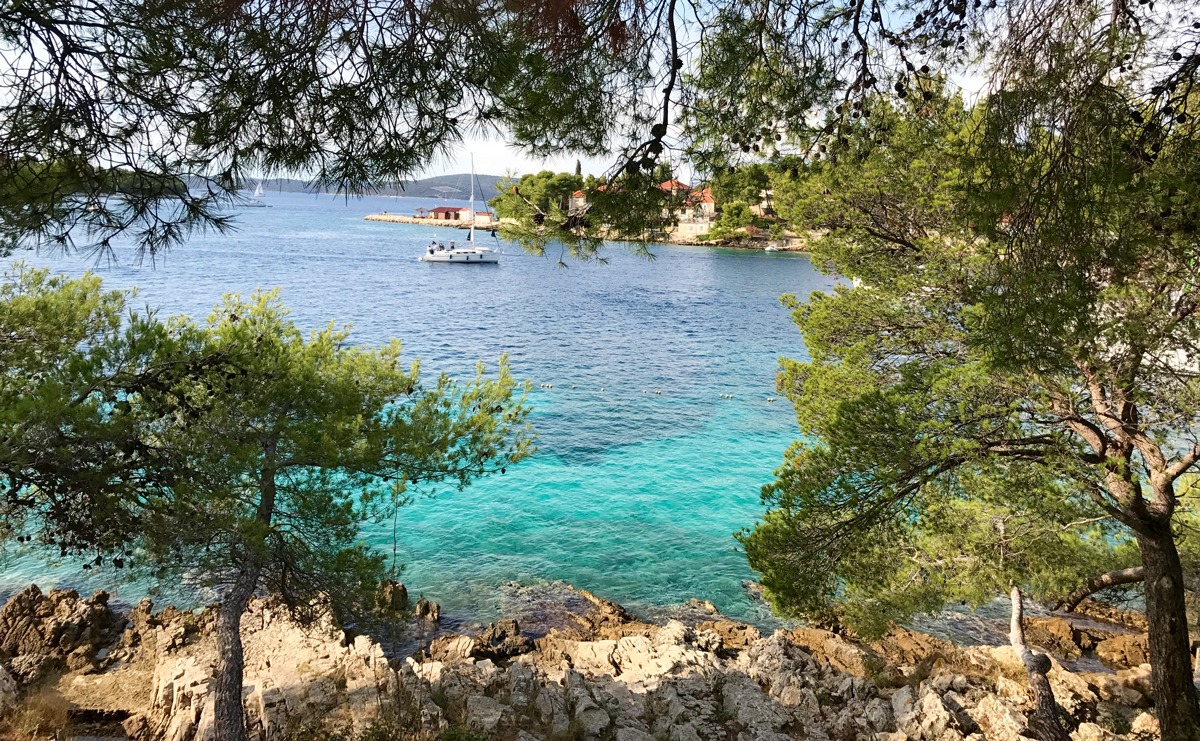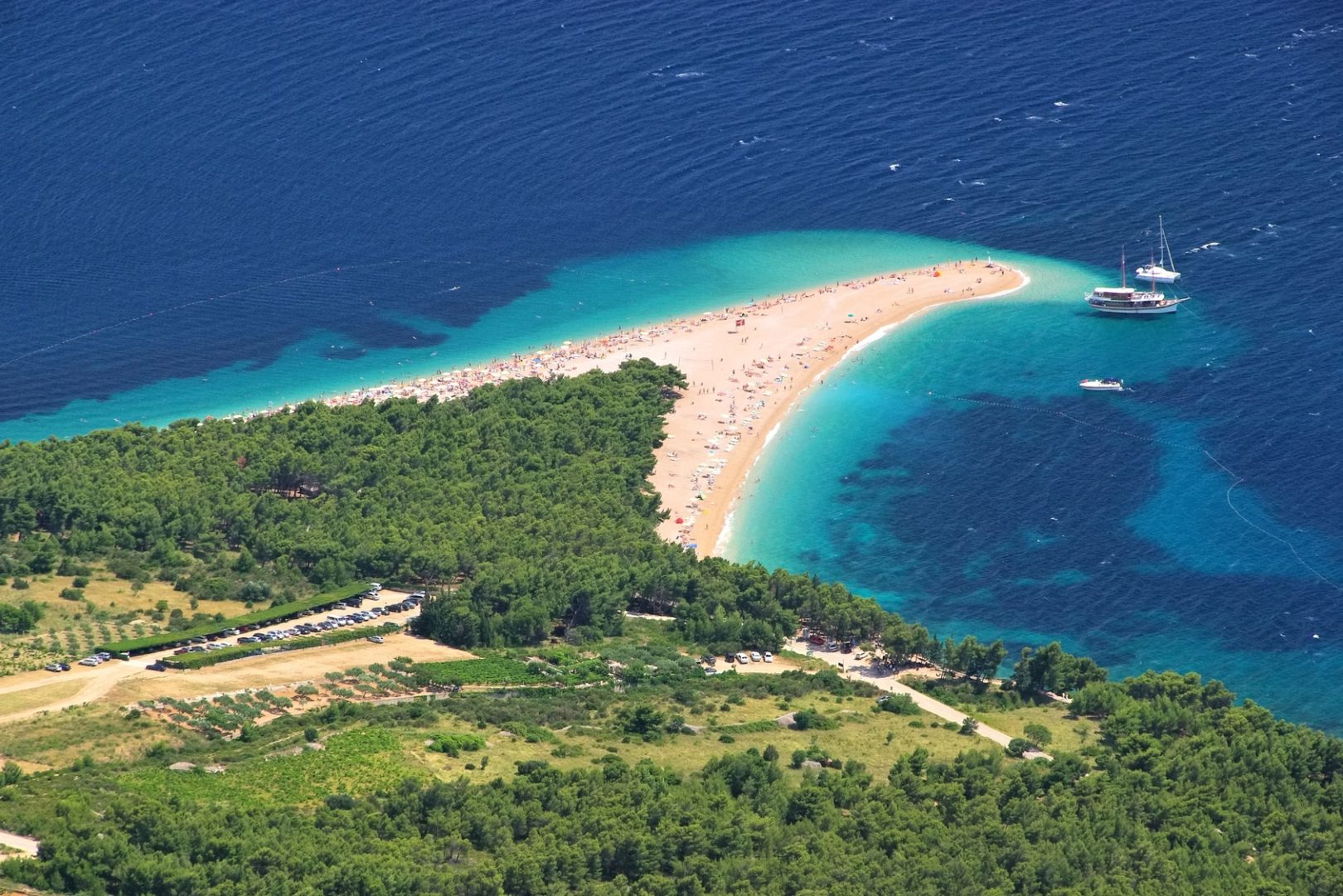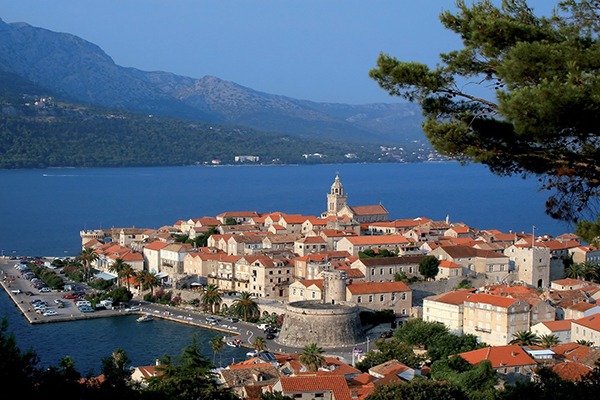Split
Split, a town on Croatia’s Dalmatian Coast, is the second-largest city of Croatia and the largest city of the region of Dalmatia. It lies on the eastern shore of the Adriatic Sea, centered on the Roman Palace of Emperor Diocletian. With enough history to warrant it’s own extended visit, many visitors use Split as a base to explore the surrounding Dalmatian Islands.
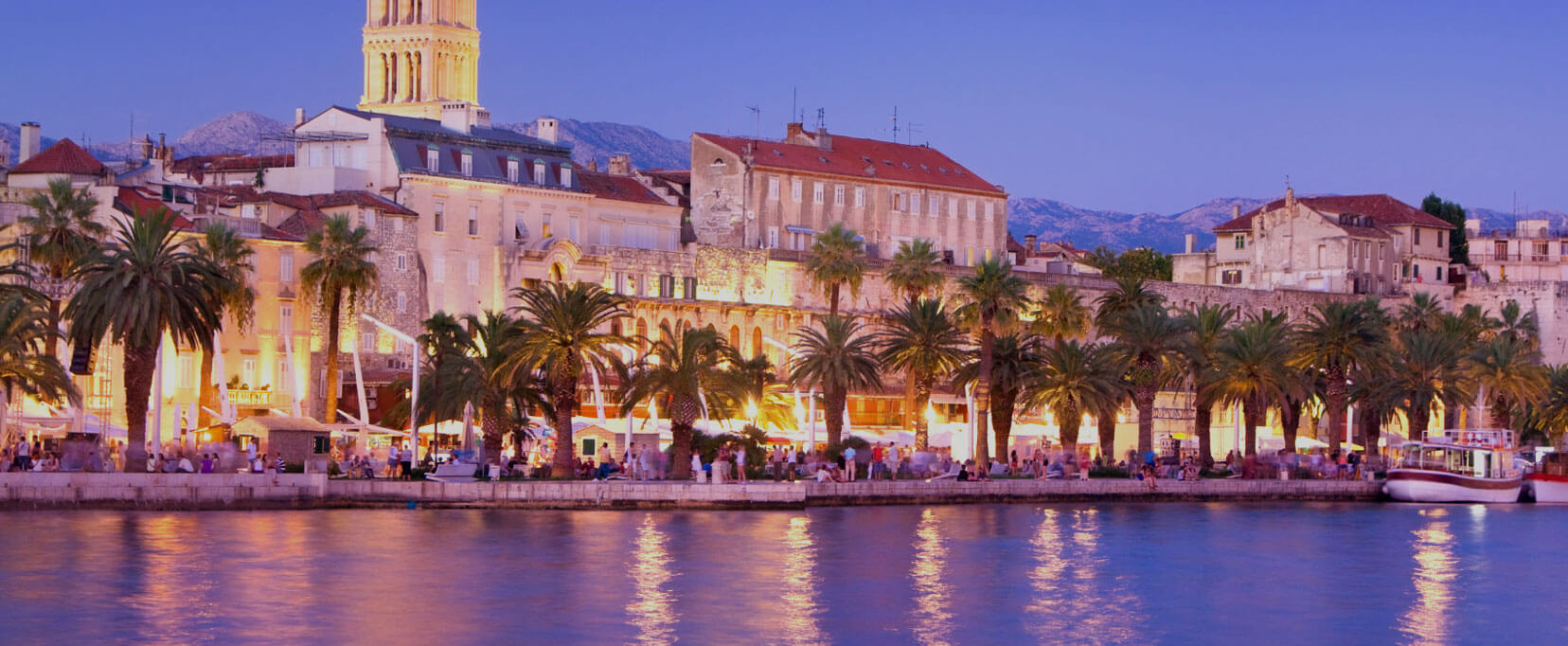
Split
Šibenik
A coastal city that has endured nearly a millennium of scorching temperatures, sustaining a few wars, being beaten by the waves and whipped by relentless winds, Šibenik remains as vibrant as ever.
Šibenik consists of stone buildings, stone stairways, rock cliffs, cobbled streets and stone arches. It is built on rocks and constructed with rocks. Šibenik is a city of sun, sea, and stone, a unique combination of characteristics that make this a city unlike any other in Croatia.
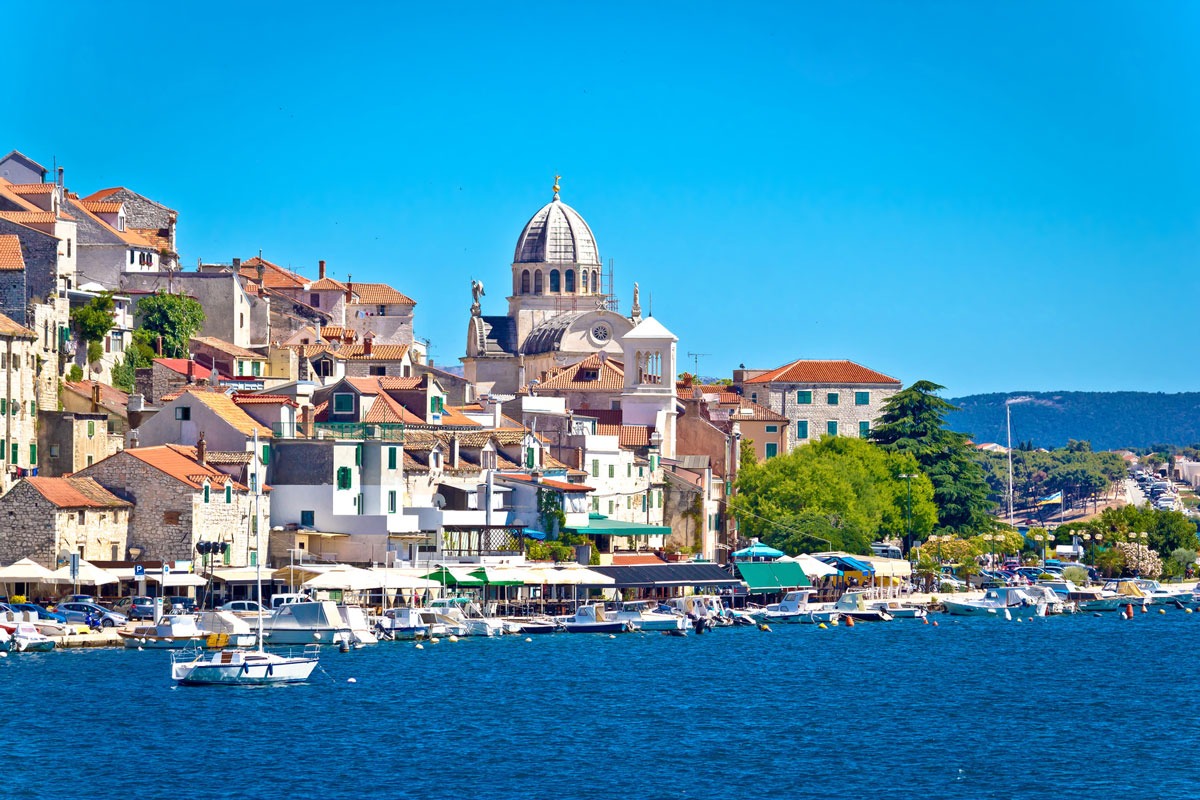
Šibenik
Skradin
Skradin is a stunning town located on the banks of the Krka river, and a gem of Croatia. It is located near Krka National Park. Although travelers pass through to get to the park, many return. Its narrow streets are filled with history, and the surrounding vineyards provide a great culinary experience.
Trogir
Trogir is a historic town and harbor on the Adriatic coast in Split-Dalmatia county. It is a UNESCO World Heritage Site famous for its Romanesque and Gothic Old Town center. Well-known for its cultural heritage and authentic architecture, the city of Trogir dates back to 3rd Century BC, while the name Tragos first appeared in 2nd century BC.

Trogir
Šolta
Although Solta is the closest island to Split, just 45 minutes by ferry, it remained a place of pristine natural beauty. With only 1,500 year-round residents, 24 bays and natural beauty, Solta is a place where you can find peace and tranquility wherever you wander. But the island is more than just a collection of sleepy villages. First mentioned by the Greeks as Olinta, for most of its history, Solta was a wealthy “province” of Split – whether it was the Roman Emperor Diocletian who had a “summer” home here as well as a private fish farm (!), or the wealthy Cindro and Cipiko families. The island is still famed for its olives, honey and wine.
Hvar
Hvar is a city and port on the island of Hvar, part of Split-Dalmatia County, Croatia. The municipality has a population of 4,251 while the city itself is inhabited by 3,771 people, making it the largest settlement on the island of Hvar.
Brac island, Bol
Pakleni Islands
The Pakleni islands are an archipelago, comprised of several smaller islands that offer perfect bays for swimming and snorkeling.

Pakleni Islands
Vis
The island of Vis was once a strategic naval Yugoslav base and closed to the public. Due to this isolation, Vis has a special charm – “the Mediterranean as it once was” – making it really interesting to visit. Situated on the northern side of the island, Vis has developed near the remains of the ancient Issa, first urban center in Croatia.
Korčula
The island of Korčula is best known as the birthplace of Marco Polo. Korčula is an enchanting destination surrounded by walls, and one of the best preserved medieval cities in the Mediterranean. Korčula has an abundant choice of restaurants, and there are numerous bars and clubs for those looking for evening entertainment.
Dubrovnik
Walls are built to protect treasures, and, in Dubrovnik, this is particularly accurate, with 1,940 meters of stone surrounding one of the world’s most beautiful cities. As George Bernard Shaw stated: “If you want to see heaven on Earth, come to Dubrovnik”. “The Pearl of the Adriatic” has captivated and seduced kings and artists for centuries with its immaculate medieval architecture.



 English
English French
French

